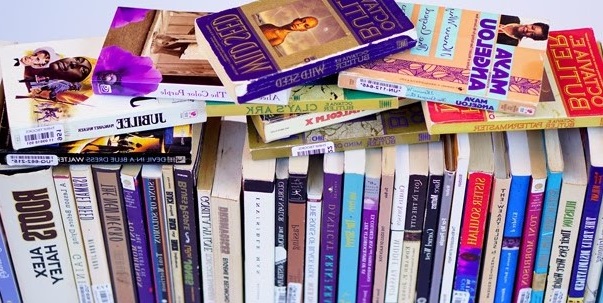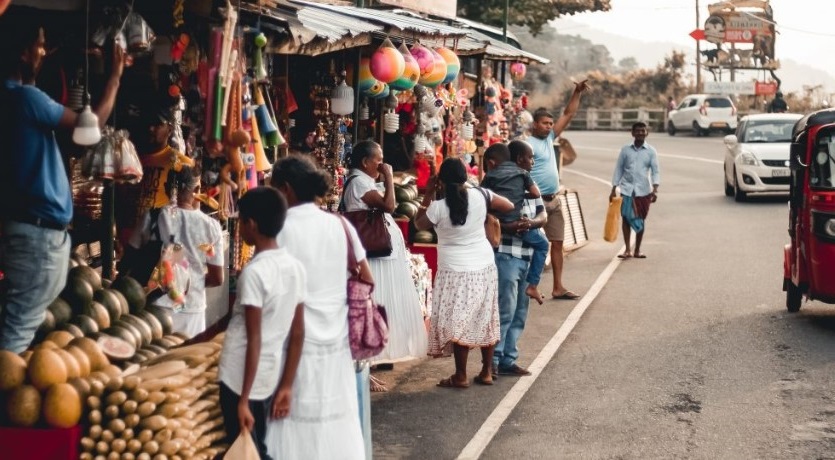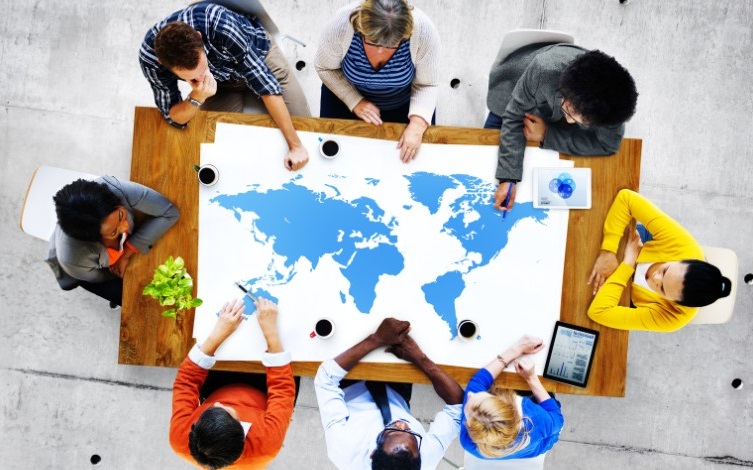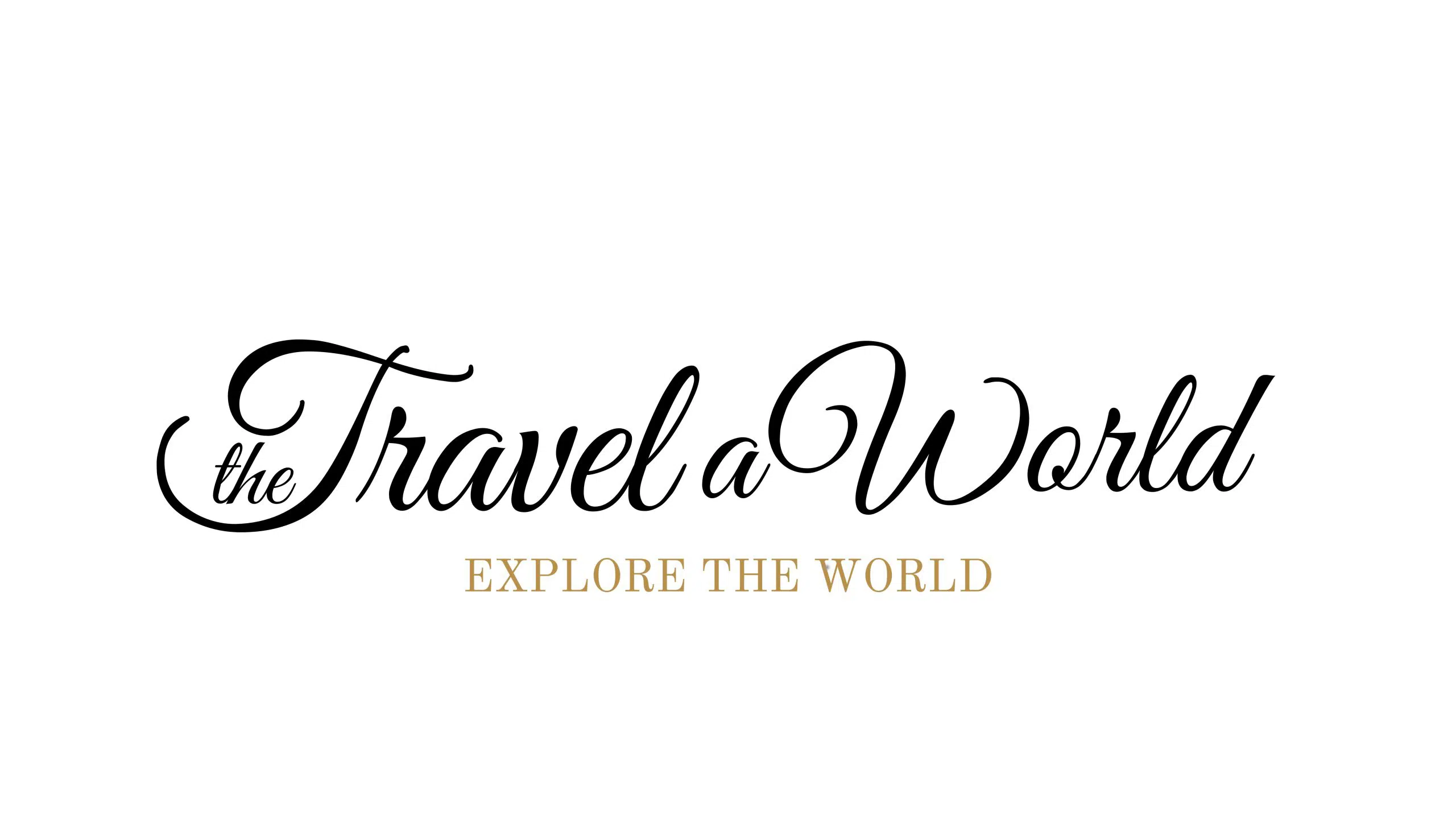
World Travel and Culture Books, refers to a genre of literature that focuses on exploring and understanding the diverse cultures, traditions, and experiences of people from different parts of the world through the lens of travel. These books typically combine elements of travelogue, memoir, and cultural analysis to provide readers with a deeper insight into the places they visit and the people they encounter.
Table of Contents
In an increasingly interconnected world, the importance of understanding different cultures cannot be overstated. Cultures are the threads that weave the rich tapestry of our global society, and exploring them can be an enriching and eye-opening experience. One of the most captivating ways to embark on this cultural journey is through literature.
World travel and culture books serve as windows into the hearts and minds of people from diverse corners of the globe. These books transport readers to far-off lands, immersing them in the customs, traditions, and unique perspectives of various societies. They provide a glimpse into the daily lives, histories, and struggles of individuals whose stories might otherwise remain hidden.
But why is it so essential to delve into these narratives penned by authors from different cultures? The answer is simple yet profound: Literature has the power to foster empathy, break down stereotypes, and build bridges between people of all backgrounds. Through the pages of a well-crafted book, we can transcend geographical boundaries, language barriers, and preconceived notions, all while broadening our horizons.
In this blog post, we will journey into the realm of world travel and culture books. We will explore how these literary treasures not only entertain but also educate, allowing us to become more informed, open-minded, and compassionate global citizens. So, grab your passport to knowledge as we embark on a literary adventure that will take us around the world and back, one page at a time.
World Travel And Culture Books

The concept of world travel culture is a captivating exploration of the interconnectedness of our global community. It encompasses the idea that we can embark on journeys of cultural discovery without ever leaving the comfort of our reading nooks. In this section, we will delve into the essence of world travel culture and uncover how literature serves as an invaluable guide to understanding the diverse customs, traditions, and lifestyles that make up our world.
The Power of Storytelling
At the heart of world travel culture lies the power of storytelling. Through literature, authors become storytellers, weaving intricate narratives that transport us to far-off lands and introduce us to characters who live, breathe, and carry the weight of their cultures. These stories, whether fictional or based on real-life experiences, provide a unique window into the nuances of various societies.
Literature allows us to peek into the daily lives of people from different cultures, offering insights into their values, beliefs, and practices. From the bustling streets of Tokyo to the serene villages of Tuscany, authors can paint vivid pictures of places and people, helping readers envision the world through the eyes of others.
Benefits of Exploring World Travel Culture
Why should one embark on the journey of exploring world travel culture through books? The benefits are manifold. First and foremost, it broadens our horizons and nurtures empathy. By immersing ourselves in these narratives, we begin to appreciate the vast tapestry of human experiences. We learn that despite our differences, there are universal themes of love, loss, hope, and resilience that bind us together.
Moreover, delving into world travel culture through literature equips us with a deeper understanding of the global community we are part of. It fosters tolerance and acceptance, breaking down stereotypes and prejudices that may have clouded our perceptions. It encourages us to celebrate the richness of diversity and to approach the unfamiliar with curiosity rather than fear.
The Impact of Globalization on Cultural Exchange through Books
In an era of globalization, the exchange of cultural ideas and perspectives has never been more accessible. Thanks to advancements in technology and the ease of international publishing, books are now powerful agents of cultural exchange. Authors from diverse backgrounds can share their stories with a global audience, transcending geographical boundaries.
This globalization of literature allows readers to discover voices from every corner of the world. It enables us to explore cultures that may have been previously inaccessible to us. Whether it’s a novel from an African author, an Asian travelogue, or a South American memoir, these literary works bring us closer to the heart of cultures and societies that we may have known little about.
In the digital age, books can be translated, shared, and discussed across borders, fostering a sense of global citizenship. The impact of globalization on cultural exchange through books is profound, promoting a more interconnected and culturally enriched world.
In the following sections, we will delve deeper into the ways in which world travel and culture books can be integrated into our lives, from formal education to personal enrichment. So, let’s continue our literary voyage, opening the doors to new worlds and perspectives with every turn of the page.
The Power of Storytelling

Storytelling is a universal language that transcends borders, cultures, and time. It serves as a bridge, connecting people from different walks of life and allowing them to share their experiences, beliefs, and aspirations. In the realm of world travel and culture books, storytelling plays a pivotal role in not only bridging cultural gaps but also in fostering a deep and empathetic understanding of diverse societies.
Bridging Cultural Gaps
At its core, storytelling is a means of human connection. It enables us to step into the shoes of others and see the world through their eyes. When authors craft narratives that delve into the heart of different cultures, they invite readers to embark on a journey of empathy and discovery. Through the characters and their experiences, readers can gain insights into the customs, traditions, and ways of life that define a particular culture.
Storytelling has the unique power to break down stereotypes and preconceived notions. It challenges our biases by presenting nuanced and multi-dimensional characters who defy easy categorization. By immersing ourselves in these narratives, we can move beyond surface-level understandings of cultures and engage with their complexities.
Examples of Famous Books
Countless books have effectively portrayed different cultures, offering readers a glimpse into the diverse tapestry of our world. Here are a few notable examples:
- “The Kite Runner” by Khaled Hosseini: This novel takes readers to Afghanistan, exploring the complexities of Afghan society through the story of two childhood friends. It provides a poignant look at the impact of political upheaval and cultural traditions on individuals and families.
- “Memoirs of a Geisha” by Arthur Golden: Set in Kyoto, Japan, this book provides a vivid portrayal of the life of a geisha, offering insights into the intricate rituals and customs of this unique cultural institution.
- “Things Fall Apart” by Chinua Achebe: A classic of African literature, this novel delves into the Igbo culture in Nigeria. It explores the clash between tradition and colonialism, shedding light on the cultural shifts brought about by external forces.
- “The Namesake” by Jhumpa Lahiri: This novel explores the experiences of a Bengali immigrant family in the United States. It delves into the challenges of navigating between two cultures and the sense of identity that arises from such an experience.
- “The Alchemist” by Paulo Coelho: While a work of fiction, this novel draws on the culture and mysticism of the Andalusian region of Spain. It weaves a spiritual journey that resonates with readers worldwide.
These books not only entertain but also educate, offering readers the opportunity to walk in the shoes of characters from different cultures. They demonstrate how storytelling can be a powerful tool for building bridges, fostering understanding, and celebrating the rich diversity of our world.
In the following sections, we will explore more ways in which world travel and culture books enrich our lives and provide practical guidance for those eager to embark on their own literary journeys of cultural exploration.
World Travel Culture

Exploring world travel culture through literature offers a wealth of personal and intellectual benefits. Beyond the simple enjoyment of a good story, these books have the power to transform readers, broadening their horizons and enriching their lives in meaningful ways.
Broadening Horizons and Fostering Empathy
- Cultivating Empathy: Reading about the experiences of characters from diverse backgrounds fosters empathy. It allows readers to step into the shoes of people from different cultures, to understand their joys, struggles, and dreams. This empathetic perspective extends to real-life interactions, making individuals more open-minded and compassionate.
- Global Awareness: Engaging with world travel culture books enhances global awareness. Readers gain insights into the complexities of global issues, cultural diversity, and the interconnectedness of our world. This knowledge equips them to engage in informed discussions and make more globally conscious choices.
- Breaking Down Stereotypes: These books challenge stereotypes and prejudices. They reveal that cultures are not monolithic, and individuals within them have diverse beliefs and experiences. Stereotypes are replaced with nuanced understandings, contributing to a more inclusive and tolerant society.
Intellectual Enrichment and Cognitive Growth
- Cultural Literacy: Delving into world travel culture books deepens cultural literacy. Readers become well-versed in the customs, traditions, and histories of various societies, enriching their intellectual toolkit.
- Language and Communication Skills: Exposure to different cultures often involves encountering foreign languages and idioms. This exposure can lead to improved language skills and an enhanced ability to communicate across linguistic boundaries.
- Critical Thinking: Analyzing cultural nuances and complexities within these books sharpens critical thinking skills. Readers learn to question assumptions and analyze situations from multiple angles.
Testimonials and Anecdotes
To illustrate the impact of exploring world travel culture through literature, here are a few testimonials from individuals who have gained valuable experiences:
- Sarah: “Reading ‘The Namesake’ by Jhumpa Lahiri allowed me to connect with my own experiences as a first-generation immigrant. It provided me with a sense of validation and a deeper understanding of the complexities of cultural identity.”
- David: “After reading ‘Things Fall Apart’ by Chinua Achebe, I realized how little I knew about African history and culture. It sparked my interest, and I started reading more African literature, which broadened my worldview.”
- Emily: “I always thought I was well-traveled until I started reading books like ‘The Kite Runner.’ These stories made me realize that there is so much more to explore and understand about the world, even from the comfort of my home.”
Incorporating world travel culture books into one’s reading repertoire can be a transformative experience. It goes beyond entertainment; it’s a journey of self-discovery and enlightenment. In the following sections, we’ll explore practical ways to get started on this literary adventure, from building diverse reading lists to finding recommended resources. So, let’s continue our exploration of the world through the pages of books.
World Travels And Culture Class

The concept of taking a class or course related to world travel and culture is an exciting and immersive way to deepen one’s understanding of the world. These educational experiences offer structured and guided journeys into the complexities of global cultures, allowing participants to explore, learn, and engage on a profound level.
Exploring the Concept
Taking a world travel and culture class involves enrolling in a formal educational program with a specific focus on exploring the diverse cultures, traditions, and societies that make up our world. Such courses are typically designed to provide comprehensive insights into various aspects of global cultures, from their histories and customs to their contemporary challenges and contributions.
Participants in these classes often engage in a range of activities, including lectures, discussions, cultural workshops, and even travel experiences when possible. The goal is to foster a deep appreciation for cultural diversity and global interconnectedness.
Advantages of Formal Education
Structured Learning Environment
One of the key advantages of enrolling in a formal class is the structured learning environment it provides. Courses are designed by experienced educators who have carefully curated the curriculum to ensure a well-rounded and comprehensive exploration of world travel and culture.
Expert Guidance
Participants benefit from the expertise of instructors who are knowledgeable in the field of cultural studies. These instructors offer guidance, answer questions, and facilitate discussions that encourage critical thinking and cultural awareness.
Academic Rigor
Formal classes often come with academic rigor, encouraging students to delve deep into their studies. This can involve research projects, presentations, and examinations that challenge students to engage deeply with the subject matter.
Networking Opportunities
World travel and culture classes often bring together individuals with a shared passion for exploring the world. This presents excellent networking opportunities, allowing participants to connect with like-minded individuals and potentially form lasting friendships or professional relationships.
Books as Supplementary Materials
Books play an integral role in world travel and culture classes as supplementary materials. They serve several important functions:
- In-Depth Exploration: Books offer in-depth explorations of specific cultural topics that may not be covered extensively in lectures or discussions.
- Diverse Perspectives: Reading multiple books from various authors provides students with diverse perspectives on a single culture or region, fostering a more comprehensive understanding.
- Primary Sources: Some books used in these classes may be firsthand accounts or ethnographic studies, offering valuable primary sources for academic research.
- Cultural Insights: Books can provide cultural insights, personal narratives, and historical context that enrich the classroom experience.
In summary, enrolling in a world travel and culture class provides a structured and guided approach to exploring the world’s diverse cultures. The advantages of formal education in this field include expert guidance, academic rigor, and networking opportunities. Books, as supplementary materials, enhance the learning experience by providing deeper insights and diverse perspectives on the cultures under study. In the following sections, we’ll delve into practical steps for those interested in pursuing formal education or self-guided exploration of world travel and culture.
Top Courses and Programs
- Cultural Anthropology
- Overview: This course delves into the study of human societies and cultures. Participants explore the cultural diversity of communities worldwide, examining topics such as rituals, kinship systems, belief systems, and social structures.
- Prerequisites: Typically, no specific prerequisites are required for introductory courses, but advanced courses may have prerequisites in anthropology or related fields.
- International Relations and Cultural Diplomacy
- Overview: This program explores the intersection of international relations and cultural exchange. Students learn how countries use cultural diplomacy to enhance their global influence and build relationships.
- Prerequisites: Bachelor’s degree in a related field, such as international relations or cultural studies, may be required for enrollment in a master’s program.
- World History and Cultures
- Overview: A comprehensive program that covers the history, culture, and civilizations of regions around the world. Participants gain a broad understanding of global historical developments and cultural evolution.
- Prerequisites: Typically open to students at the undergraduate level, with no specific prerequisites.
- Intercultural Communication
- Overview: This course focuses on effective communication in diverse cultural contexts. Students learn how to navigate cultural differences in communication styles, nonverbal cues, and conflict resolution.
- Prerequisites: Generally open to students at the undergraduate level; no specific prerequisites, but a background in communication or related fields may be beneficial.
- Culinary Tourism and Gastronomy
- Overview: This program explores the relationship between food, culture, and tourism. Participants delve into the culinary traditions of different regions, learning about the role of food in cultural identity.
- Prerequisites: Typically open to students at the undergraduate level; no specific prerequisites, but an interest in culinary arts or tourism can be advantageous.
- Language and Culture Immersion Programs
- Overview: These programs offer immersive language and cultural experiences in specific countries. Participants live and study abroad, gaining language proficiency and deep cultural insights.
- Prerequisites: Requirements vary by program but may include language proficiency at a certain level or prior coursework in the language of study.
- Cultural Studies
- Overview: This interdisciplinary field explores culture from various perspectives, including literature, art, history, sociology, and more. Students analyze cultural phenomena and their societal impacts.
- Prerequisites: Typically open to students at the undergraduate level, with no specific prerequisites.
- Global Studies and International Relations
- Overview: This program provides a comprehensive understanding of global issues, international politics, and cultural dynamics. Students examine the interconnectedness of the world.
- Prerequisites: Requirements vary by program but may include a bachelor’s degree in a related field for master’s programs.
Before enrolling in any of these courses or programs, it’s essential to check with the specific institution or program for detailed information on prerequisites, qualifications, and admission requirements, as they may vary depending on the educational institution and level of study.
Recommended Reading List
Asia:
- “The Joy Luck Club” by Amy Tan
- Description: Explore the intricate relationships between Chinese immigrant mothers and their American-born daughters in San Francisco’s Chinatown. This novel provides a poignant glimpse into Chinese culture and the challenges of assimilation.
- “The God of Small Things” by Arundhati Roy
- Description: Set in India, this novel delves into the lives of fraternal twins as they navigate societal expectations and cultural complexities. It offers a vivid portrayal of Indian society, traditions, and the impact of caste.
Africa:
- “Half of a Yellow Sun” by Chimamanda Ngozi Adichie
- Description: Set during the Nigerian Civil War, this novel provides insights into the history, culture, and struggles of Nigeria. It explores themes of identity, nationalism, and colonialism.
- “The Shadow of the Sun” by Ryszard Kapuściński
- Description: Kapuściński’s memoir recounts his experiences as a journalist in Africa. It offers a firsthand perspective on the continent’s political, cultural, and social landscape.
Latin America:
- “One Hundred Years of Solitude” by Gabriel García Márquez
- Description: This iconic work of magical realism explores the history and culture of the fictional town of Macondo in Colombia. It weaves a tapestry of family, love, and political turmoil.
- “The Motorcycle Diaries” by Ernesto Che Guevara
- Description: Follow Che Guevara’s transformative journey across South America. This travelogue offers insights into the people, landscapes, and inequalities of the continent.
Middle East:
- “Persepolis” by Marjane Satrapi
- Description: This graphic novel memoir provides a unique glimpse into Iran’s history and culture through the eyes of a young girl growing up during the Islamic Revolution.
- “The Kite Runner” by Khaled Hosseini
- Description: Set in Afghanistan, this novel explores friendship, redemption, and the impact of political upheaval on individuals and families. It offers a window into Afghan culture and history.
Global Themes:
- “The Art of Travel” by Alain de Botton
- Description: This philosophical exploration of travel delves into the why and how of our wanderlust. De Botton combines personal experiences with insights from famous travelers and thinkers.
- “In Search of Respect: Selling Crack in El Barrio” by Philippe Bourgois
- Description: This ethnographic study provides a gritty look at life in East Harlem, New York. It explores issues of poverty, addiction, and the resilience of a marginalized community.
These books offer a diverse range of perspectives, from family sagas to political narratives, providing a rich tapestry of world cultures and experiences. They can enhance the learning experience of world travel and culture classes, offering students the opportunity to delve deeper into the regions and themes discussed in their coursework.
Certainly, here are some practical tips for readers who want to start exploring world travel and culture through books:
How to Get Started
1. Define Your Interests and Goals
- Start by identifying the regions or cultures you’re most interested in. Are you drawn to the mystique of Asia, the vibrancy of Latin America, or the history of Europe? Defining your interests will help you narrow down your reading list.
- Set clear goals for your cultural exploration. Do you want to gain a broad understanding of global cultures or delve deep into a specific region? Having clear objectives will guide your reading choices.
2. Build a Diverse Reading List
- Create a list of books that align with your interests and goals. Consider both fiction and non-fiction titles, as well as memoirs, travelogues, and historical texts. A diverse reading list will provide different perspectives.
- Include books that cover various aspects of culture, such as history, traditions, cuisine, and daily life. This will give you a comprehensive view of the culture you’re exploring.
3. Visit Local Bookstores and Libraries
- Explore local bookstores and libraries in your area. They often have dedicated sections for world literature and travel books. Don’t hesitate to ask for recommendations from knowledgeable staff.
- Libraries may also offer interlibrary loan services, allowing you to access books from other branches or regions.
4. Utilize Online Resources
- Online bookstores like Amazon, Barnes & Noble, and Book Depository offer vast selections of world travel and culture books. You can browse by region or topic to find relevant titles.
- E-books and audiobooks provide convenient options for reading on the go. Platforms like Kindle, Audible, and Google Play Books offer extensive collections.
5. Join Book Clubs and Online Communities
- Consider joining a book club or online community focused on world literature and cultural exploration. These groups often provide reading recommendations, discussions, and a sense of community.
- Websites like Goodreads offer reading challenges and book recommendations based on your interests.
6. Set Reading Goals
- Establish reading goals to stay motivated and organized. For example, you might aim to read one book from a different culture each month or read a certain number of books from a specific region within a year.
- Keep a reading journal to track your progress, jot down insights, and note books you want to explore in the future.
7. Engage in Discussions and Reflection
- After reading a book, engage in discussions with friends, family, or online communities. Sharing your thoughts and insights can deepen your understanding and provide new perspectives.
- Reflect on how the book has expanded your cultural knowledge and challenged your preconceptions.
8. Explore Beyond Books
- Extend your cultural exploration beyond books. Watch documentaries, cook traditional dishes, attend cultural events, and learn a few phrases in the language of the culture you’re exploring.
Remember that cultural exploration through books is a lifelong journey. Stay open to new experiences, embrace diversity, and enjoy the enriching process of expanding your cultural horizons.
How to Get Started
1. Define Your Interests and Goals
- Start by identifying the regions or cultures you’re most interested in. Are you drawn to the mystique of Asia, the vibrancy of Latin America, or the history of Europe? Defining your interests will help you narrow down your reading list.
- Set clear goals for your cultural exploration. Do you want to gain a broad understanding of global cultures or delve deep into a specific region? Having clear objectives will guide your reading choices.
2. Build a Diverse Reading List
- Create a list of books that align with your interests and goals. Consider both fiction and non-fiction titles, as well as memoirs, travelogues, and historical texts. A diverse reading list will provide different perspectives.
- Include books that cover various aspects of culture, such as history, traditions, cuisine, and daily life. This will give you a comprehensive view of the culture you’re exploring.
3. Visit Local Bookstores and Libraries
- Explore local bookstores and libraries in your area. They often have dedicated sections for world literature and travel books. Don’t hesitate to ask for recommendations from knowledgeable staff.
- Libraries may also offer interlibrary loan services, allowing you to access books from other branches or regions.
4. Utilize Online Resources
- Online bookstores like Amazon, Barnes & Noble, and Book Depository offer vast selections of world travel and culture books. You can browse by region or topic to find relevant titles.
- E-books and audiobooks provide convenient options for reading on the go. Platforms like Kindle, Audible, and Google Play Books offer extensive collections.
5. Join Book Clubs and Online Communities
- Consider joining a book club or online community focused on world literature and cultural exploration. These groups often provide reading recommendations, discussions, and a sense of community.
- Websites like Goodreads offer reading challenges and book recommendations based on your interests.
6. Set Reading Goals
- Establish reading goals to stay motivated and organized. For example, you might aim to read one book from a different culture each month or read a certain number of books from a specific region within a year.
- Keep a reading journal to track your progress, jot down insights, and note books you want to explore in the future.
7. Engage in Discussions and Reflection
- After reading a book, engage in discussions with friends, family, or online communities. Sharing your thoughts and insights can deepen your understanding and provide new perspectives.
- Reflect on how the book has expanded your cultural knowledge and challenged your preconceptions.
8. Explore Beyond Books
- Extend your cultural exploration beyond books. Watch documentaries, cook traditional dishes, attend cultural events, and learn a few phrases in the language of the culture you’re exploring.
Remember that cultural exploration through books is a lifelong journey. Stay open to new experiences, embrace diversity, and enjoy the enriching process of expanding your cultural horizons.
Building a Diverse Reading List

1. Embrace Multicultural Themes
- Seek out books that explore multicultural themes. Look for titles that delve into the intersections of cultures, such as immigration, diaspora, or cross-cultural relationships. These books often offer a rich tapestry of perspectives.
2. Explore Different Genres
- Don’t limit yourself to a single genre. Mix it up by including fiction, non-fiction, historical novels, memoirs, travelogues, and even poetry. Each genre provides a unique lens through which to view culture.
3. Prioritize Own Voices Literature
- Seek out books written by authors from the culture or region you’re exploring. Own voices literature offers authentic insights and voices that resonate with cultural authenticity.
4. Mix Contemporary and Classic Works
- Balance contemporary books with classics. Classic literature often provides historical and cultural context, while contemporary works offer modern perspectives and insights.
5. Read Across Continents
- Create a reading challenge to explore books from different continents. For instance, dedicate a month to African literature, followed by a month of Asian or European reads.
6. Utilize Online Resources
- Join online forums like Goodreads, Reddit’s book-related subreddits, or platforms like Book Riot for book recommendations and discussions. These communities often have dedicated threads for diverse reads.
- Explore book recommendation websites and blogs that focus on diversity and global literature. They curate lists of books from various cultures and backgrounds.
7. Join Diverse Book Clubs
- Participate in book clubs that emphasize diversity and cultural exploration. Many book clubs select books from around the world and engage in discussions that promote cultural understanding.
8. Check Literary Awards
- Look for books that have received international or multicultural literary awards. Winners and finalists often represent exceptional works that offer profound cultural insights.
9. Read Translated Literature
- Don’t shy away from translated literature. Translated works provide access to stories and perspectives that might otherwise remain inaccessible due to language barriers.
10. Incorporate Indigenous Voices
- Explore books written by indigenous authors. These voices offer unique perspectives on culture, heritage, and contemporary issues.
Building a diverse reading list is an enriching and enlightening endeavor. It allows readers to traverse the globe, experiencing the richness of cultures and gaining a deeper appreciation for the interconnectedness of our world. So, embark on your literary journey, one book at a time, and embrace the boundless world of global literature.
Certainly, here’s a table summarizing the key sections and content of the entire article:
| Section | Content Description |
|---|---|
| Introduction | – Introduces world travel and culture books. |
| – Highlights the importance of understanding different cultures. | |
| World Travel Culture | – Explores the concept of world travel culture. |
| – Discusses insights into customs, traditions, and lifestyles. | |
| – Mentions the impact of globalization on cultural exchange. | |
| The Power of Storytelling | – Highlights storytelling’s role in bridging cultural gaps. |
| – Provides examples of famous books portraying different cultures. | |
| Benefits of Exploring World Travel Culture | – Discusses personal and intellectual benefits of reading. |
| – Shares anecdotes and testimonials from individuals. | |
| World Travels And Culture Class | – Explains the concept of taking classes in this field. |
| – Discusses advantages of formal education. | |
| – Mentions how books are used as supplementary materials. | |
| Top Courses and Programs | – Lists reputable courses related to world travel and culture. |
| – Provides overviews and prerequisites for each program. | |
| Recommended Reading List | – Offers a selection of books by regions and themes. |
| – Includes brief descriptions of each recommended book. | |
| How to Get Started | – Provides practical tips for exploring world travel and culture. |
| – Encourages setting reading goals and tracking progress. | |
| Building a Diverse Reading List | – Shares strategies for creating a well-rounded reading list. |
| – Encourages exploring books from various parts of the world. | |
| – Mentions resources like book clubs and online forums. |
This table summarizes the main content and sections of the article, offering a quick reference guide for readers.
(FAQs) and their corresponding answers based on the content of the entire article:
FAQ 1: What are world travel and culture books?
- Answer: World travel and culture books are literary works that explore and portray various aspects of cultures, traditions, lifestyles, and global travel experiences through storytelling.
FAQ 2: Why is it important to understand different cultures through literature?
- Answer: Understanding different cultures through literature promotes empathy, fosters global awareness, breaks down stereotypes, and contributes to a more interconnected and tolerant society.
FAQ 3: How can literature provide insights into different cultures?
- Answer: Literature allows readers to immerse themselves in the lives and experiences of characters from different cultures, offering insights into their values, beliefs, and practices.
FAQ 4: What impact does globalization have on cultural exchange through books?
- Answer: Globalization has made cultural exchange through books more accessible, allowing authors from diverse backgrounds to share their stories with a global audience, promoting a sense of global citizenship.
FAQ 5: What is the role of storytelling in bridging cultural gaps?
- Answer: Storytelling serves as a universal language that connects people from different cultures, offering a means to step into the shoes of others and understand their experiences.
FAQ 6: Can you recommend some famous books that effectively portray different cultures?
- Answer: Certainly! Some examples include “The Kite Runner,” “Memoirs of a Geisha,” “Things Fall Apart,” “The Namesake,” and “The Alchemist.”
FAQ 7: What are the personal and intellectual benefits of reading about world travel and culture?
- Answer: Reading about world travel and culture cultivates empathy, enhances global awareness, breaks down stereotypes, and sharpens cultural literacy and critical thinking skills.
FAQ 8: Where can I find relevant world travel and culture books online and offline?
- Answer: You can find such books in local bookstores, libraries, online bookstores like Amazon, and e-book platforms. Additionally, online communities and book clubs can provide recommendations.
FAQ 9: How can I set reading goals to explore world travel and culture books?
- Answer: Setting reading goals involves defining your objectives, creating a diverse reading list, and tracking your progress to stay motivated and organized.
FAQ 10: What are some strategies for building a well-rounded reading list?
- Answer: Strategies include embracing multicultural themes, exploring different genres, prioritizing own voices literature, mixing contemporary and classic works, and reading across continents.
FAQ 11: What is “own voices” literature?
- Answer: “Own voices” literature refers to books written by authors who share the same cultural or marginalized identity as the characters or themes they portray.
FAQ 12: How can I engage in discussions and reflection after reading world travel and culture books?
- Answer: Engaging in discussions with others, whether in person or online, and keeping a reading journal can help you reflect on the books and their cultural insights.
FAQ 13: Where can I find diverse book clubs and online forums for book recommendations?
- Answer: You can find diverse book clubs and forums on platforms like Goodreads, Reddit, and specialized book-related websites and blogs.
FAQ 14: Are there any specific awards for multicultural literature that I should be aware of?
- Answer: Yes, there are international and multicultural literary awards that recognize outstanding works from various cultures, such as the Nobel Prize in Literature and the Man Booker International Prize.
FAQ 15: How can I incorporate cultural exploration beyond books?
- Answer: Beyond books, you can explore cultures by watching documentaries, trying traditional cuisine, attending cultural events, and learning a few phrases in the language of the culture you’re interested in.
Inference.
- World Travel and Culture Books: World travel and culture books are a valuable genre of literature that allow readers to explore and understand diverse cultures, traditions, and lifestyles through storytelling.
- Importance of Cultural Understanding: Understanding different cultures through literature is vital for fostering empathy, promoting global awareness, breaking down stereotypes, and building a more interconnected and tolerant world.
- Role of Literature: Literature provides a unique window into different cultures by immersing readers in the lives and experiences of characters from diverse backgrounds, allowing for insights into their values, beliefs, and practices.
- Globalization and Cultural Exchange: Globalization has made it easier for authors from various cultures to share their stories with a worldwide audience, contributing to a sense of global citizenship and cultural exchange.
- Storytelling as a Bridge: Storytelling serves as a universal language that bridges cultural gaps, enabling readers to step into the shoes of characters from different backgrounds and gain a deeper understanding of their experiences.
- Benefits of Cultural Exploration: Exploring world travel and culture through literature offers personal and intellectual benefits, including enhanced empathy, global awareness, cultural literacy, critical thinking skills, and a more open-minded perspective.
- Reading Goals and Strategies: Setting reading goals and strategies, such as embracing diverse genres, prioritizing own voices literature, and exploring different continents, can help readers build a well-rounded and enriching reading list.
- Online Resources and Communities: Utilizing online resources like book clubs, forums, and book recommendation websites can be instrumental in discovering diverse books and engaging in meaningful discussions about world travel and culture.
- Reflection and Engagement: Engaging in discussions and reflection after reading world travel and culture books can deepen one’s understanding and appreciation of different cultures, fostering meaningful connections with others.
- Continued Exploration: Cultural exploration goes beyond books and can include watching documentaries, trying traditional cuisine, attending cultural events, and learning languages, providing a holistic approach to understanding the world.
These inferences capture the essence of the article’s content, emphasizing the significance of world travel and culture exploration through literature and providing practical guidance for readers interested in embarking on this enriching journey.
Full artilrl :
THROUGH WORLD TRAVEL CULTURE: EXPLORING 5 BEAUTIFUL GLOBAL DIVERSITIES
4 WORLD TRAVELS AND CULTURE CLASS: EXPLORING THE GLOBAL EXPERIENCE LUXURY

